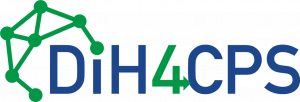Problem and Description
To date operators need to estimate the live biomass, based on assumptions on growth and survival rate, in order to have a guess on how much feed the organisms cultured will need each day. This leads to underfeeding or overfeeding, both of which are related to negative effects: either reduced growth or reduced water quality, in turn creating reduced growth. A sustainable production requires the knowledge of how much live organisms are present at any time, giving reliable values for their feed demand.
Approach
The project partners follow the approach of combining their experiences in the fields of sensor technology, data processing, digitalization and the operation of aquaculture plants in order to meet the already described possibilities of process and quality improvements. In the field of food production the aim is to develop a digital twin by building cyber physical systems. In addition to improving the sustainability of food production, care should also be taken in all project steps to ensure that the solutions developed not only run in a test environment, but can also be applied to the real world. This includes not only the circumstances from the plant operations, but also the aspect of economic feasibility.
Implementation Plan
- Comprehensive requirements engineering to describe the interests of all stakeholders and to identify the most decisive process steps.
- Preparation of a business plan
- Development of a detailed project plan and distribution of tasks between the project partners.
- Construction of a prototype for the acquisition of image data
- Development of a prototype for the processing the recorded data
- Use of the information gained for the development of process control algorithms
- Combination and optimization of prototypes into one system
- Further development of the system for productive use (TRL 7)
Expected Results
It is expected that it will be possible to monitor the complete production process by using a digital twin concept by means of embedded systems and cyber-physical systems. This will increase safety and quality in food production and minimise waste of energy and pet food. This results in research and innovation enhances application and state of practice in the areas of ML, AI and image processing, in particular in a so far under-developed application domain. At this, a prototype is developed which will be used in a productive environment and which uses AI/ML methods to control and improve the processes themselves.
Partner & Expertise:
| POLY | Engineering and development of solutions for water treatment and indoor aquaculture plants |
| SWMS | Experts for digitalization of industrial processes using IoT and IT technologies |
| BIBA | Research institute for production & logistics. CPS/IoT test fields. |
For further information, please visit https://dih4cps.eu/experiment-01/

